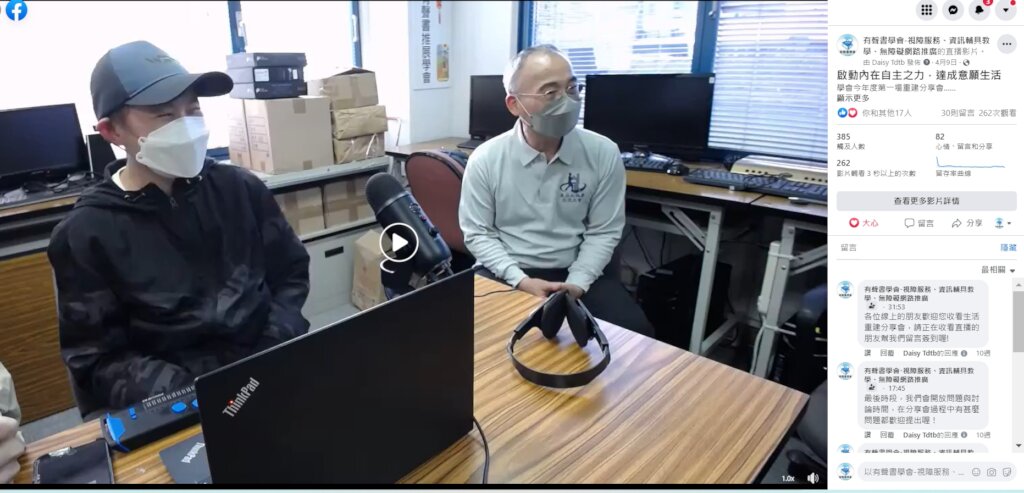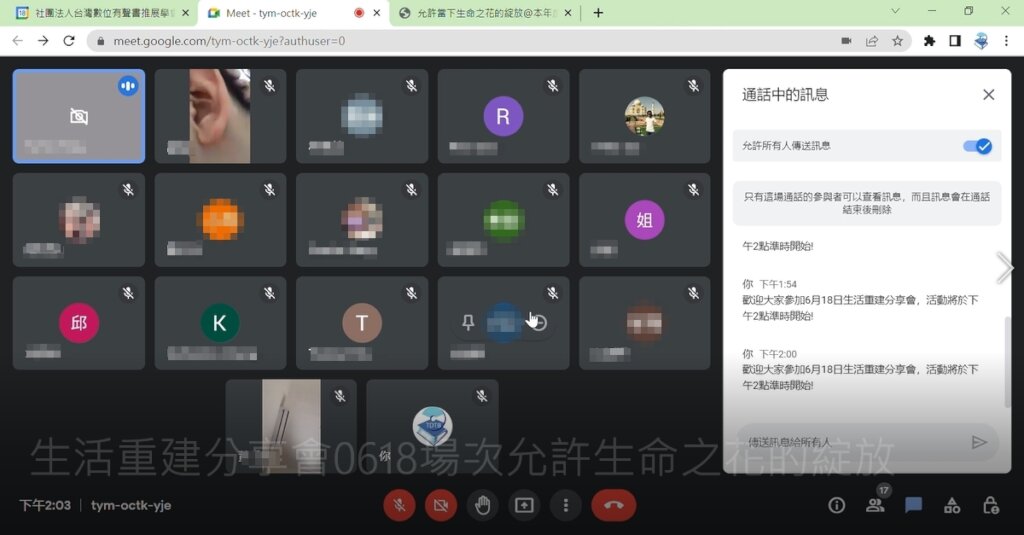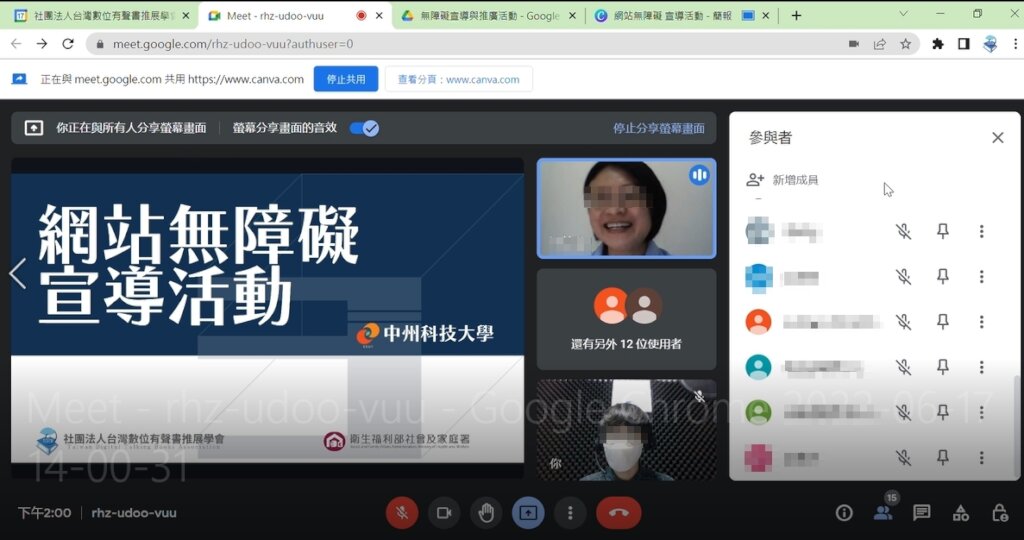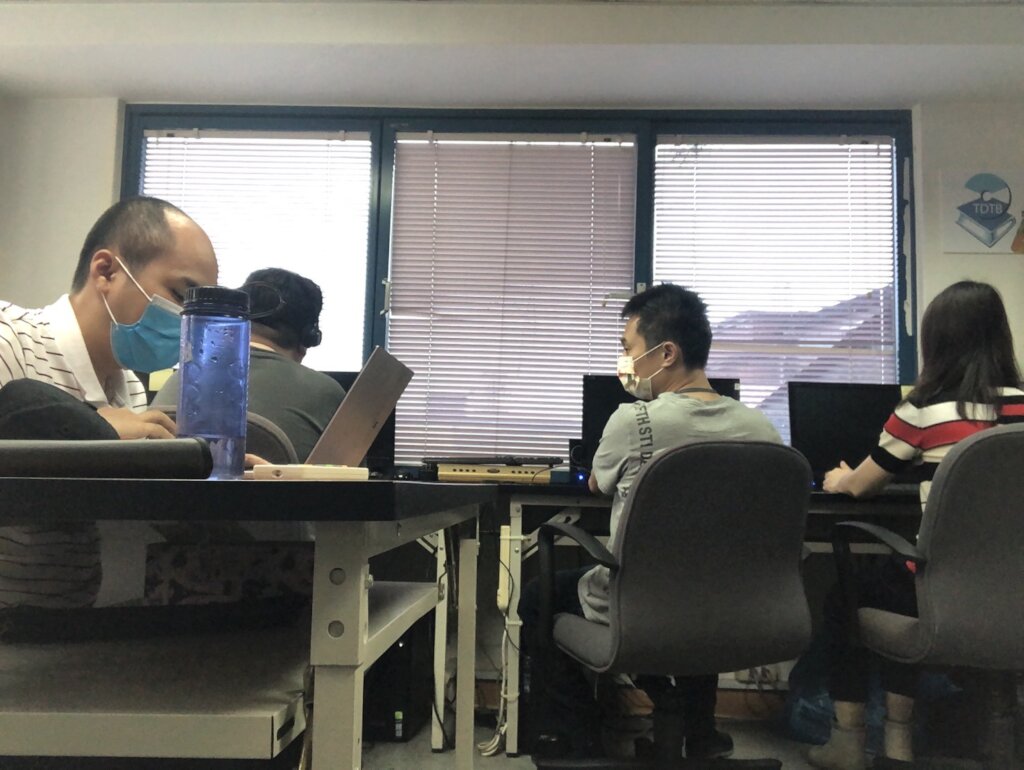By Audrey Lin | Project Manager
The epidemic prevention measures in Taiwan experienced the transition from zero-COVID to coexist with the virus. From April to June, the confirmed cases have reached a peak. Live-in family, relatives, and partners around TDTB had Omicron in succession. Therefore, many events have been canceled or postponed one after another. Despite this, TDTB stays positive and never stops our service to assist the visually impaired in coming out of the darkness.
Let’s see what we have done this season.
1. Life Reconstruction Sharing Session
This season, we held two sharing sessions, inviting Jian Fuxuan, who is studying Sports Science at National Taiwan Sport University, and one of TDTB’s teacher-Yuling Pang, as the session lecturer. They shared how to conquer the fear of becoming visually impaired and adapt to a new social environment. We would like to see the visually impaired could be spurred by the stories and find their way eventually.
2. Web Accessibility Promotion
Web accessibility is one of the elements for people with disability to have information equality. TDTB expects the general public could understand that web accessibility design is a prerequisite for disabled people to browse the website. Therefore, we held promotion activities with the cooperation of three universities. They are—the National Taiwan University of Science and Technology, Chaoyang University of Technology, and Chung Chou University of Science and Technology. Besides, through the conversation with the general public, web designers can take the web accessibility design into account in the future to achieve everyone have the same right to acquire information on the internet.
3. Seven Diversity Group Classes
TDTB held seven group classes this season, including four courses for the elderly-operating mobile phones with non-visual, two online application courses, and an e-book appliance course.
With the increase of age and the ever-changing technology, vision blurred, and degeneration happened rapidly. To reduce the burden on the eyes when the elderly are using electronic products and prevent vision loss, we designed a course to teach them to operate the mobile phone by listening instead.
Word processing is the most common skill in paperwork or presentation. However, this teaching model has become a hindrance and caused the progress of coursework to lag for visually impaired students. Therefore, we taught them Google online tools, Gmail, and reading documents through a screen reader. The online application course is the door to resolving the technical problems and assisting them in keeping up with the schedule.
Since listening is the most important sensory system for the visually impaired, audiobooks and e-books are the primary sources to obtain information. The E-Book instruction course is to teach visually impaired people familiar with exploiting screen readers to listen to e-books and browse e-book websites. Longing for visually impaired people to build up their ability by reading and getting to know more about diverse knowledge.
4. New Column on the Journey of Voice No.57
The Journey of Voice is our quarterly publication. Every season, we invite the visually impaired, volunteer partners, and interns to share their opinion on our activities and related issues. Starting from the no.57 quarterly journal, TDTB will select three featured DAISY audiobooks. Readers could find the resource from our DAISY Library. Welcome to subscribe to our digital journal or read the articles on our website to brighten up your day!
5. Little by Little Fundraising Program
The funding for teaching the visually impaired using computer learning aids islimited. However, the risk of vision loss is unlimited. Thanks to GlobalGiving and all the donors who participated in the fundraising event-Little by Little. Because of your passion, we could serve more visually impaired people. This season, TDTB assisted 52 cases in overcoming the hurdle of psychological shadow and computer skills. Last but not least, they could continue writing their life script.
Links:
Project reports on GlobalGiving are posted directly to globalgiving.org by Project Leaders as they are completed, generally every 3-4 months. To protect the integrity of these documents, GlobalGiving does not alter them; therefore you may find some language or formatting issues.
If you donate to this project or have donated to this project, you can receive an email when this project posts a report. You can also subscribe for reports without donating.
Support this important cause by creating a personalized fundraising page.
Start a Fundraiser


